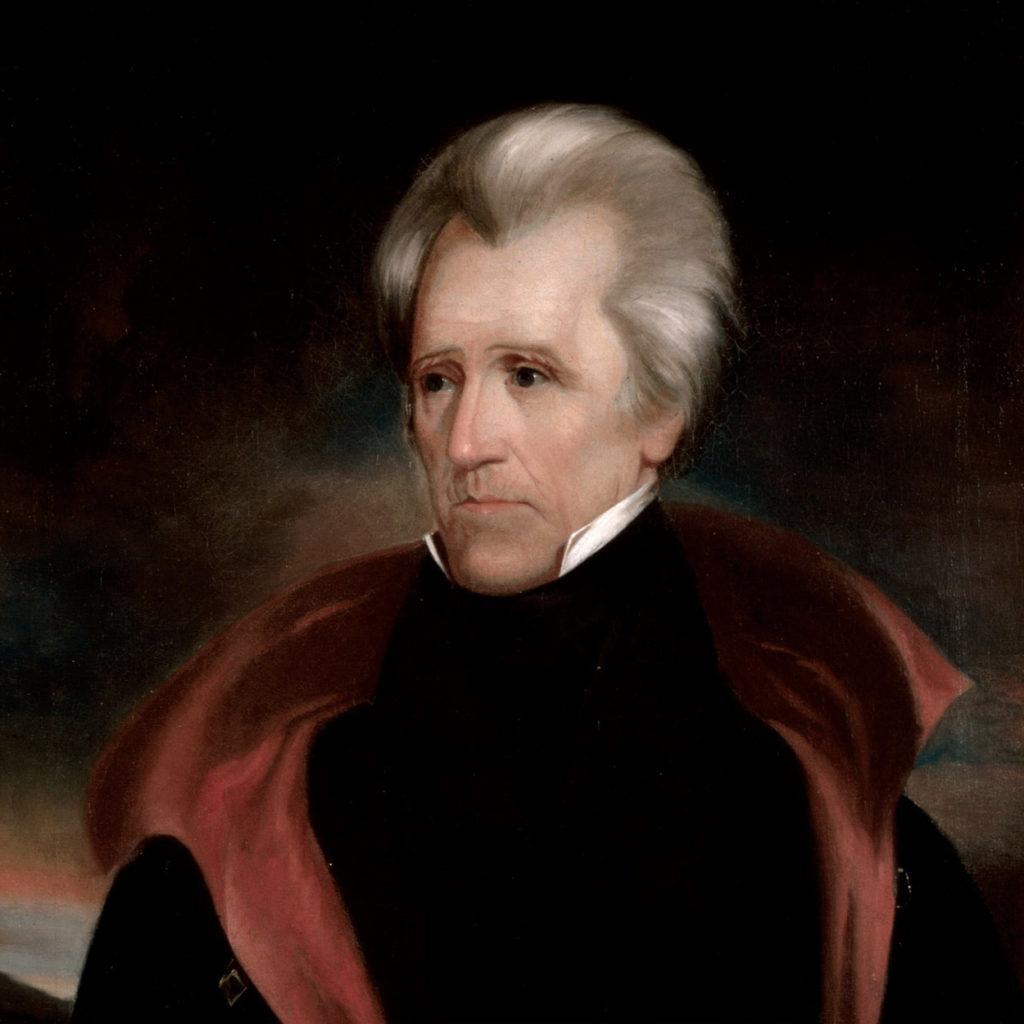The Original “People’s President”
Andrew Jackson was the first populist in the White House.
This column first appeared in the Daily Times on September 8, 2023 (here).
As I have pointed out in previous columns, Tennessee has a rich and interesting history. Admitted into the Union as the 16th state in 1796, Tennessee was originally part of colonial North Carolina. In 1784, when North Carolina conditionally waived all claims to land west of the Appalachian Mountains, the area comprising what is now known as east Tennessee formed an ill-fated sovereign State of Franklin, which unsuccessfully sought admission to the Union. North Carolina reasserted its control of the area in 1788, but the difficulties of protecting settlers from hostile natives in the lands west of the mountains led North Carolina to relinquish the lands in 1790, whereupon the federal government recognized the area as the “Territory South of the River Ohio,” or the Southwest Territory.
William Blount, the namesake of our county, was appointed the first governor of the territory by President George Washington. Statehood followed six years later.
Tennessee, which served as a brutal battleground during the Civil War, produced three Presidents during the 19th century (Andrew Jackson, James K. Polk, and Andrew Johnson) and nearly produced a fourth in 2000, Al Gore. The problem was that the Volunteer State—which Gore had represented in the House and Senate for 16 years (1977-93)–did not support Gore in his freakishly-close race against George W. Bush. Gore turned out not to be a “favorite son” in his home state, with fateful consequences. Many famous Americans started their public lives in Tennessee, but this column concerns the seventh President of the United States, Andrew Jackson, who had previously served on the Tennessee Supreme Court, in both houses of Congress, and as territorial attorney general.

What brought Jackson national fame and adulation, however, was not his public service but his military prowess, in particular his triumphant victory over the vastly-larger British army, led by General Edward Pakenham, in 1815 at the Battle of New Orleans, bolstered (before and after) by successes in wars against various tribes of native Americans. Jackson ran for President in 1824, winning a plurality of the popular vote and electoral votes in a four-way race. To Jackson’s bitter disappointment, Congress, selecting the President pursuant to the 12th Amendment due to the lack of an Electoral College majority, chose John Quincy Adams—a result that Jackson believed was the result of a “corrupt bargain” in which fourth place finisher Henry Clay (who was House Speaker) allegedly pledged his support to Adams in return for an appointment as Secretary of State.
Clay may have hoped that the prized appointment as Secretary of State would position him to be the frontrunner candidate for the 1828 presidential election, but “Old Hickory” had other ideas. By 1828, male suffrage had been extended to most whites, regardless of property ownership. Campaigns became public affairs, and Jackson’s populist message—opposition to corruption by political insiders, adherence to the Constitution, and giving a voice to the common man—resonated with voters. He won in a landslide, besting Adams by an Electoral College margin of 178 to 83. Following his inauguration in March 1829, attended by many supporters from distant frontier states, Jackson hosted a raucous public reception at the White House. A large crowd of ordinary people descended on the White House, devouring food, quaffing whiskey-laced punch, and reportedly breaking or stealing several thousand dollars’ worth of china. Jackson escaped to his hotel through a window or side entrance (reports vary).
Despite their boisterous behavior at the White House, the unruly crowd was not quelled by armed troops or charged with crimes. Guests were not prosecuted. Government buildings were not yet considered “shrines” off-limits to the public. Jackson’s exuberant supporters exulted at the election of “the people’s President.” Jackson did not fail to deliver. Three signature events during his two-term presidency were his veto of re-authorization of the Second Bank of the United States, squelching South Carolina’s threat to defy (or “nullify”) the Tariff of 1832, and removing native Americans from the interior of the United States, for their benefit as well as to promote further settlement of the frontier.
Historians often mark Jackson’s presidency as the beginning of an era in American history—”The Age of Jackson.” Jackson’s presidency was also a harbinger of political realignment. The “Democratic Republican Party” became simply the “Democratic Party”; the opposition Whig Party would eventually evolve into the modern Republican Party. Jackson’s presidency was momentous and transformational. His friend and protégé, Sam Houston, won independence for Texas in 1836. Sadly, Jackson would not live to see the Lone Star State join the Union as the 28th state in 1845.
If you have not yet visited Jackson’s homestead near Nashville, The Hermitage, I encourage you to do so. It is magnificent.































